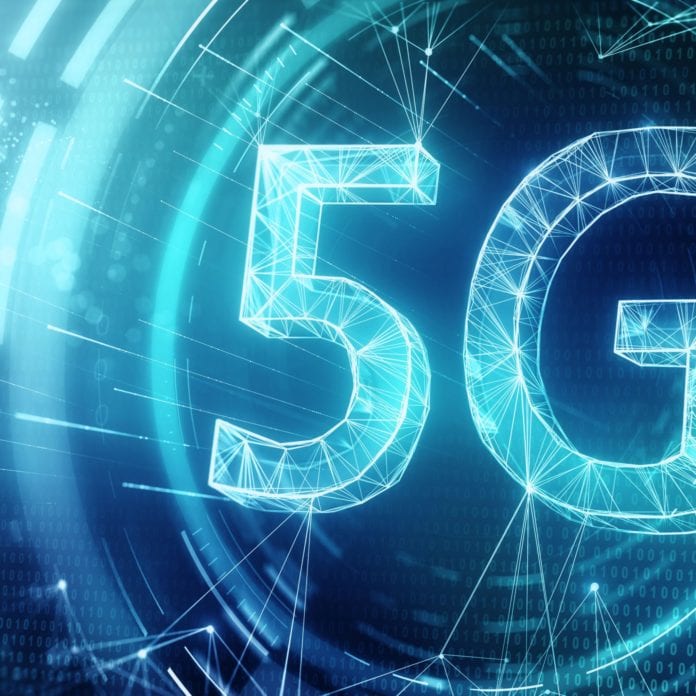5G officially arrived this year. In certain parts of the US, it’s already providing AT&T users with upload speeds as fast as 500 megabytes per second and significantly reduced latency. It reached South Korea in 2018, and was launched in China in October by three wireless carriers. The direct benefits to consumers will be many, but what about the industries that are quick to leverage the technology?
Industry impact of 5G is already gaining swing for early adopters, and is only going to accelerate further. Qualcomm predicts that 5G will boost global GDP by $3 trillion and create more than 22 million jobs by 2035. 5G has countless applications to empower the Internet of Things (IoT), artificial intelligence (AI) technologies, robotics, augmented reality (AR), virtual reality (VR), and much more. In this article we will explore the industries that are already using these technologies and how we can expect to see 5G speed up adoption.
1 Manufacturing
Manufacturing plants all over the world are joining the Fourth Industrial Revolution and relying on digital technology and network connections to power their operations. From managing safety, to engineer communications and monitoring inventory, staying connected in real-time is vital for modern manufacturing.
Many organizations are already operating smart factories using technologies like IoT and AR, and 5G only promises to make these more powerful. In fact, according to the Huffington Post, 82% of US companies using smart factories reported an increase in efficiency and 49% reported lower product defects.
So how exactly will 5G accelerate this trajectory?
Once implemented, 5G will mean latency as low as one millisecond and data speeds faster than one GB per second (Gbps) and up to 20 Gbps at its peak. This means connected devices will be able to react to their changing environment and make decentralized decisions in real-time, without the delay it would usually take to send data to the cloud.
5G will empower people to use AR to solve problems faster and more efficiently. With AR, troubleshooters don’t need to trawl through instruction documents, and can use an AR solution such as Microsoft HoloLens to find the issue quickly with the help of the digital information that’s layered over the real-world image. This is exactly what’s being done currently at Ericsson, which has boosted productivity by 50%.
The strong, reliable connection provided by 5G also holds huge potential for robotics. We can see the beginnings of this in Nokia’s facility in Oulu, a city that’s host to a live 5G Test Network. With the help of 5G, Nokia is able to connect mission critical applications and systems using the Industrial IoT. The Finnish company has managed to automate 99% of its factory, while sensors on the plant floor monitor temperature and humidity to make sure conditions are optimum.
The many benefits of 5G have already hit certain early-adopters within the manufacturing industry. While we’re not yet there, we can be sure that once adoption is widespread, manufacturers all over the world will be able to drive productivity and efficiency using the technology.
2 Automotive
Probably the most important development to come from the advent of 5G to the automotive industry will be the acceleration of autonomous driving. While current self-driving cars are able to see and think for themselves while broadcasting their location, speed and direction – with 5G, they’ll also be able to talk to one another. This means having the ability to merge into lanes, take turns at stop signs, and even create a platoon to squeeze more cars on the road.
Low latency from 5G will ultimately mean safer journeys in self-driving cars, as cars will react to potential threats immediately as they process data in real-time. 5G will also speed up innovation in automotive, as access to data will be faster and edge computing moves computing closer to the vehicle.
3 Healthcare
Often viewed as a sector where widespread digitization and innovation is slow, healthcare is set to seriously benefit from the advent of 5G. With 5G, healthcare professionals will be able to quickly transmit large image files, expand telemedicine capabilities, improve AR and VR technologies, and reliably monitor patients remotely.
One of the most impressive 5G use cases we have seen so far in healthcare was the remote surgery performed by a doctor in China, who used 5G to insert a stimulation device in the brain of the Parkinson’s patient from nearly 2,000 miles away. With lag times as much as two seconds with 4G speeds, this kind of operation was impossible. However, with 5G allowing for surgeons to be able to work remotely, both in terms of being present to provide support and performing surgery itself, a whole new host of opportunities will open up for specialist healthcare.
5G could create new industries altogether
As well as empowering industries across the spectrum, 5G could very well spur the creation of original solutions that we are yet to think of. In the same way that 20 years ago we could not have anticipated all of the futuristic connected car features we see today, there are likely many products that lie ahead of us that we cannot foresee. 5G will no doubt continue to innovate the ways in which we live, work, and travel, so organizations across the board should now be making sure that they have the expertise in place to welcome the technology with open arms.
By Mateusz Przepiórkowski, Vice President – Head of Technology, Media & Telecommunications (TMT) at intive.

